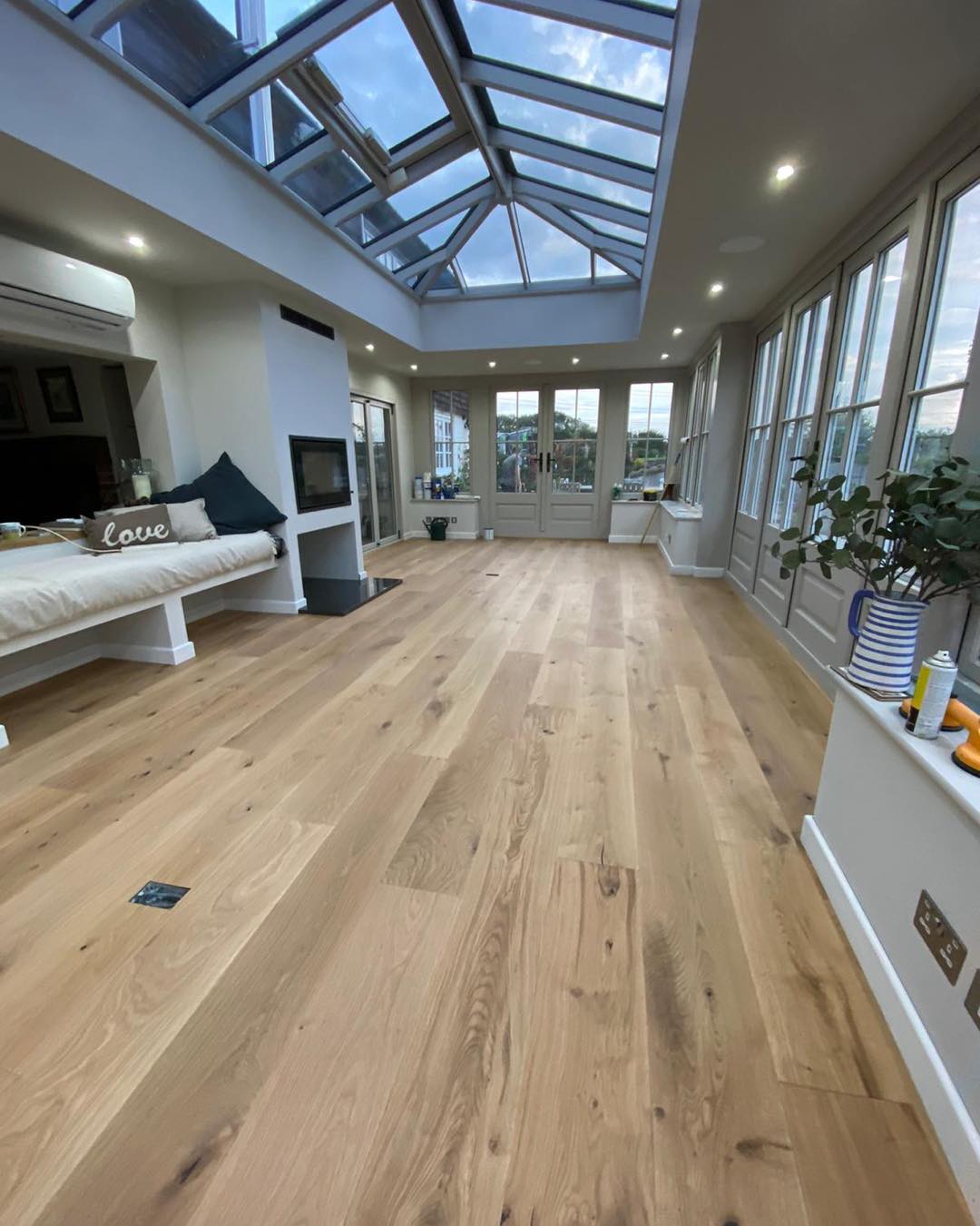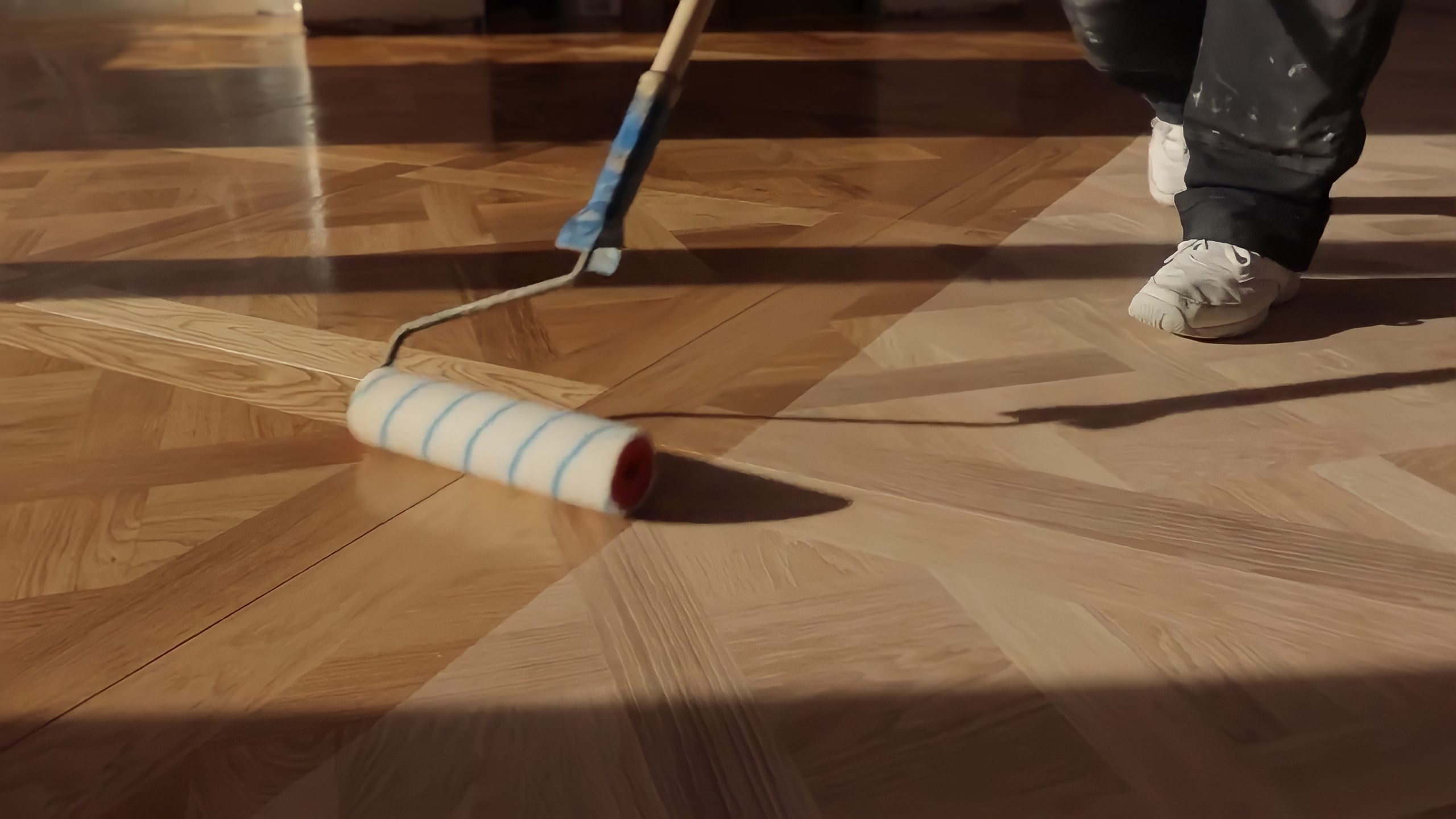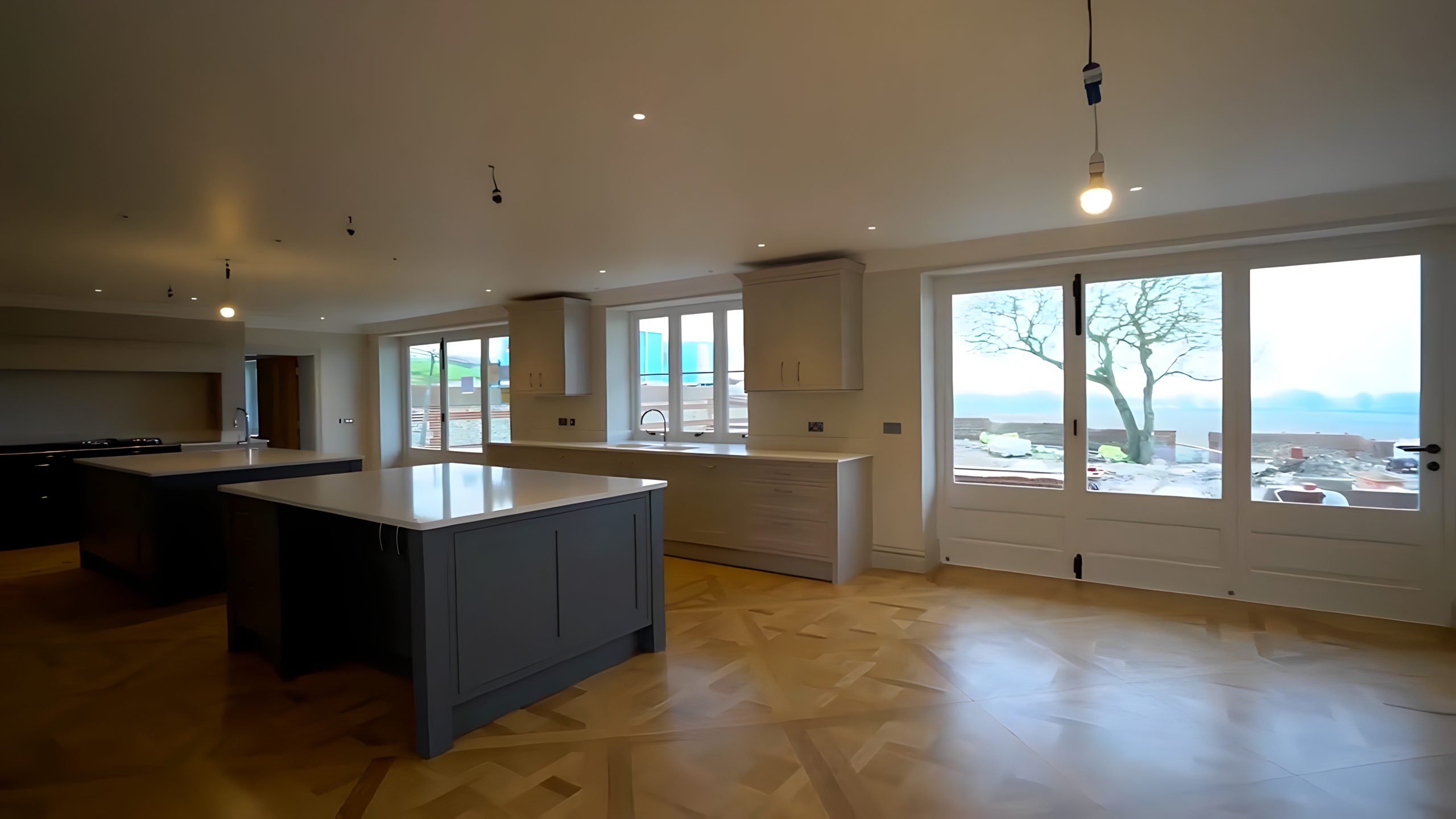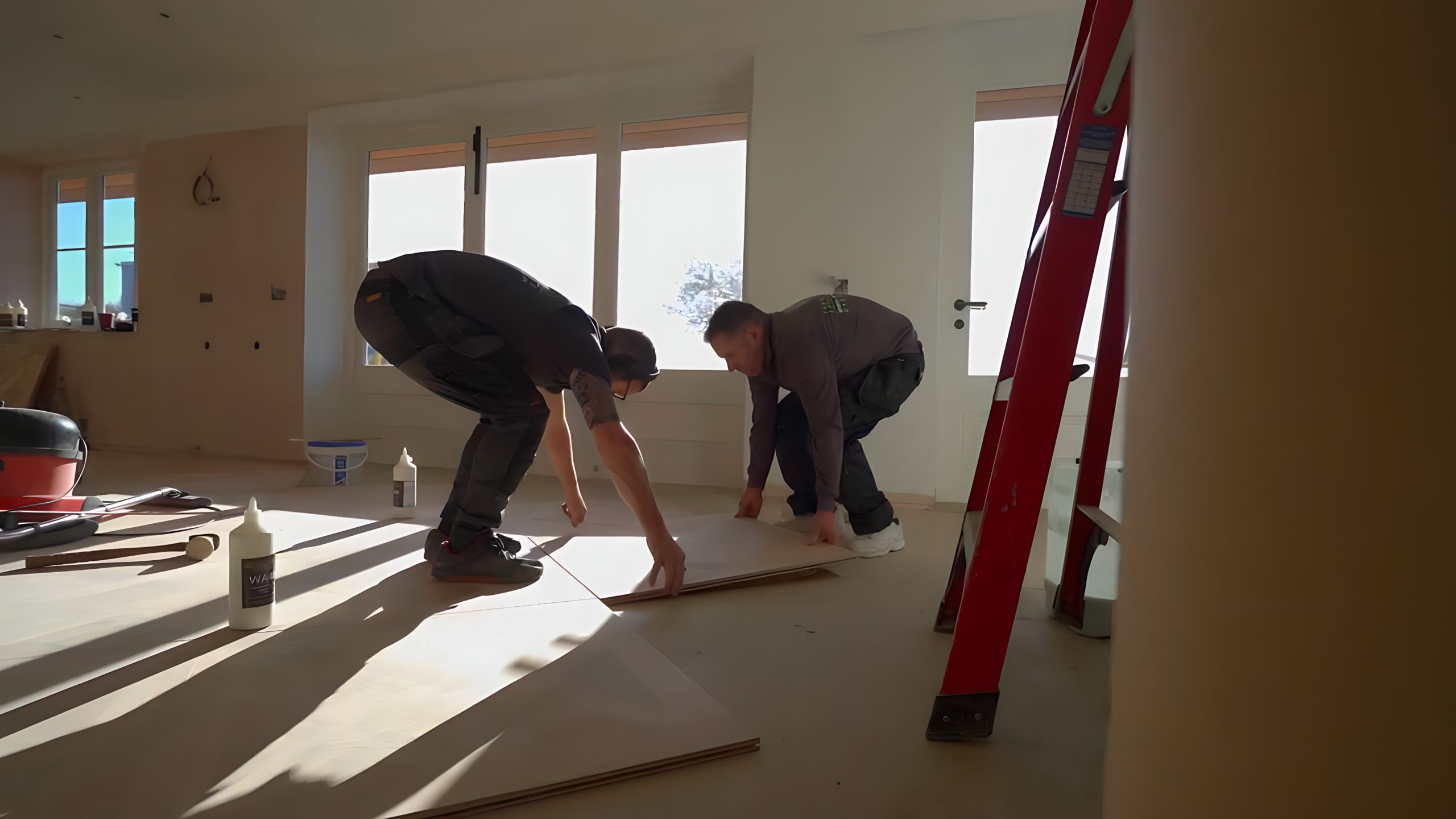Hardwood flooring symbolizes enduring quality and timeless elegance. As a premium choice in property refurbishment and interior design, good quality hardwood flooring not only enhances visual appeal but also offers impressive performance. Its durability, investment potential, aesthetic flexibility, improved indoor air quality, and low-maintenance features make it an optimal choice for adding long-term value to a home. This article explores the benefits of investing in top quality hardwood flooring with supporting examples that reinforce its superiority over alternative materials.
Experience Unmatched Durability With High Quality Hardwood Flooring
One major advantage of high quality hardwood flooring is its exceptional durability. Engineered to withstand heavy foot traffic, furniture movement, and everyday impacts, these floors can last for decades — sometimes a lifetime with proper care.
Understand the Long Lifespan of Premium Wood Floors
High quality hardwood flooring can often exceed 50 years in lifespan thanks to the inherent strength of solid wood. When sourced and processed correctly, it retains its structural integrity even in homes with active families, contributing to higher resale values.
How Good Quality Hardwood Flooring Withstands Daily Use
The durability of hardwood comes from its dense grain and natural oils, which repel moisture and minor abrasions. Hardwood floors can be refinished several times during their lifespan, renewing their surface appearance without compromising strength. Oak and maple, for example, are popular for their high Janka hardness ratings.
The Structural Integrity of Solid Wood Materials
Solid wood floors, made from a single piece of timber, offer excellent load-bearing capacity. Quality sourcing from sustainably managed forests ensures that only the best timber is used, maintaining consistent performance even in high-traffic areas.
Refinishing Potential for Decades of Beauty
Unlike laminate or vinyl, solid hardwood can be sanded and refinished to remove scratches and dents. This process, which may be repeated over the years, rejuvenates the wood’s natural beauty and extends its service life, with many floors maintaining their appearance for over 60 years.
Resistance to Scratches and Dents in Superior Flooring
Proprietary surface treatments and high-end finishes such as polyurethane protect hardwood from superficial damage. This means everyday accidents cause minimal disruption to its overall aesthetics, even in busy commercial or residential areas.
Augment Your Home’s Value With Best Quality Hardwood Flooring

Investing in top quality hardwood flooring enhances a home’s visual appeal and significantly boosts its market value. Buyers are drawn to the luxury and longevity hardwood proves to be.
The Strong Appeal of Hardwood to Prospective Buyers
Hardwood flooring exudes warmth and sophistication that synthetic alternatives cannot match. Studies have found that homes with hardwood floors may sell for up to 6% more than those with lower-quality flooring options, creating a welcoming environment that speaks of enduring quality.
Calculating Return on Investment for Good Quality Hardwood Flooring
Beyond improving aesthetics, hardwood floors offer energy savings through natural insulation while increasing resale value. The premium added by hardwood flooring can recoup a substantial portion of the initial investment during resale.
How Premium Wood Floors Contribute to Higher Resale Figures
The presence of hardwood is a decisive factor in buyers’ decisions. Its easy maintenance and decades-long durability directly impact interior finish appraisals, often commanding a significant premium over cheaper alternatives like laminate.
A Timeless Feature That Enhances Market Attractiveness
The timeless appeal of well-finished hardwood integrates seamlessly with various decor styles. Its versatile beauty makes hardwood flooring not only a functional investment but also a lasting design statement that increases a home’s visual and market appeal.
Lasting Impression of Luxury With High Quality Hardwood Flooring
In luxury properties, hardwood flooring creates an exclusive atmosphere thanks to its natural grain, polished finish, and sophisticated character. Species such as oak, walnut, and mahogany are particularly prized for their distinctive features that immediately impress buyers.
Achieve Timeless Style and Elegance With Good Quality Hardwood Flooring
Good quality hardwood flooring adapts to changing design trends while maintaining a timeless style that elevates any space.
The Versatile Aesthetic of Different WoodSpecies and Finishes
Available in a variety of species—from oak and maple to exotic bamboo and walnut—hardwood flooring offers multiple hues and textures. Finishes range from matte to high-gloss, allowing it to complement traditional, modern, or eclectic interiors.
Creating a Warm, Inviting Atmosphere in Any Room
The natural beauty of hardwood, with its subtle color variations and unique grain, adds depth and character to any room. Studies in interior design note that natural wood elements promote calm and well-being, making rooms appear more inviting.
How High Quality Hardwood Flooring Adapts to Various Interior Designs
Hardwood flooring’s wide range of textures and colors means it fits seamlessly into diverse design schemes—from minimalist lofts to cozy cottages. Its neutral background enhances other decor elements, offering a long-term solution that evolves with the home’s style.
The Enduring Natural Charm of Real Wood
Unlike synthetic materials that may quickly look outdated, real wood flooring matures with a patina that adds character over time. This natural evolution enhances its status as a timeless design element.
Elevating Your Home’s Overall Look and Feel
Serving as the centerpiece of an interior space, hardwood flooring elevates a home’s overall aesthetic. Its refined appearance leaves a strong impression on guests and prospective buyers, making it a favorite among architects and interior designers.
Promote Better Indoor Air Quality With Best Quality Hardwood Flooring

Good quality hardwood flooring contributes to improved indoor air quality, a benefit that enhances healthy living.
Hardwood Surfaces Reduce Trapped Allergens, Dust, and Pollen
With a smoother surface than carpeting, hardwood floors do not trap dust, allergens, or pollen. This leads to a reduction in airborne particulates and creates a healthier indoor environment, especially for allergy sufferers.
The Natural, Non-Toxic Composition of High Quality Hardwood Flooring
Hardwood flooring is naturally non-toxic and free from harmful additives. Unlike some synthetic materials, it does not off-gas volatile organic compounds (VOCs), making it a safer choice for families and pets.
Simpler Cleaning Contributes to a More Hygienic Environment
The ease of cleaning hardwood—typically a matter of dusting and damp mopping—ensures that allergens are kept at bay. Without the deep piles of carpet to harbor dirt, routine cleaning is more effective and requires fewer chemicals.
A Superior Choice for Allergy Sufferers and Health-Conscious Households
Homes with hardwood flooring display lower levels of common allergens. This, combined with its non-toxic nature and simple cleaning regimen, makes hardwood an ideal choice for those with respiratory concerns or allergies.
Avoiding Harmful VOCs Often Found in Other Flooring Options
Good quality hardwood floors emit very low levels of VOCs, thereby maintaining a healthier indoor air quality. This benefit is particularly important for environmentally and health-conscious consumers.
Enjoy Simplified Maintenance With Good Quality Hardwood Flooring
Another key benefit of premium hardwood flooring is its low maintenance requirement. Compared to other flooring options that need complex upkeep, hardwood offers straightforward care routines.
Routine Care to Preserve the Sheen of Your High Quality Hardwood Flooring
Maintaining hardwood floors is simple. Regular dusting and a damp mop remove dirt and prevent scratches. Periodic use of wood polish helps preserve the natural sheen and integrity of the floor.
Effectively Managing Spills and Marks on Wood Surfaces
Hardwood’s resistance to liquid spills means that quick cleaning usually prevents long-term staining or warping. This resilience is a significant advantage in busy households where accidents are common.
Long-Term Upkeep for Sustained Visual Appeal
Over time, even the finest hardwood may require refinishing. This process, which involves sanding and applying a new finish, is relatively straightforward and can refresh the look of your flooring in a single day by professionals.
Recommended Cleaning Methods for Best Quality Hardwood Flooring
Experts recommend using minimal water, specially formulated wood cleaning agents, and protective measures against abrasive dust. Avoiding steam mops and harsh detergents ensures that the finish remains intact over time.
Save Time and Effort With Easy-to-Clean Surfaces
The ease of maintenance of hardwood flooring not only saves time on daily chores but also reduces long-term upkeep costs. This efficiency enhances its appeal as a practical, long-term investment.
Making an Informed Choice for Your High Quality Hardwood Flooring Investment

Choosing the right hardwood flooring is crucial for both immediate appeal and long-term benefits. Understanding quality markers and wood grades is essential for making a sound investment.
Identifying Markers of Genuine Good Quality Hardwood Flooring
Genuine hardwood flooring is characterized by consistent grain patterns, minimal knots (unless a rustic look is desired), and a uniform finish. Documentation such as material certification and warranty details confirms that the wood meets industry standards and has been responsibly sourced.
Understanding Different Wood Grades and Their Impact
Wood is graded based on quality, species, and finish. Heartwood from oak, for instance, is admired for its strength and rich character, while sapwood may offer a lighter appearance but with less durability. Consumers should consider these qualities in relation to their specific needs and exposure conditions.
The Role of Professional Installation in Maximising Benefits
Even the best flooring can underperform if improperly installed. Professional installation addresses subfloor leveling, moisture control, and proper acclimation of the wood, ensuring long-term performance and warranty validation.
Considering the Source and Sustainability of Your Wood
Sustainable sourcing standards, such as FSC certification, ensure that the wood is harvested responsibly. This not only supports environmental preservation but also adds value for eco-conscious buyers.
Long-Term Cost Effectiveness of Choosing the Best Quality Hardwood Flooring
Although good quality hardwood may have a higher upfront cost, its durability, low maintenance, and positive impact on resale value often make it a cost-effective long-term investment in home improvement.
List of Key Hardwood Flooring Advantages
- Unmatched Durability– Robust performance in high-traffic areas Hardwood flooring offers exceptional longevity due to its solid construction.
- Value Augmentation – Enhanced resale potential and property appeal The presence of hardwood floors can significantly increase market value.
- Timeless Elegance – A versatile aesthetic that adapts to any interior design The natural grain provides a warm, inviting ambiance that enhances décor.
- Health Benefits – Improved indoor air qualityand allergen reduction Smooth surfaces reduce dust and allergens for a healthier environment.
- Low Maintenance – Simple cleaning routines that save time and effort Easy upkeep and periodic refinishing ensure lasting beauty and functionality.
Table: Comparison of Hardwood Flooring vs. Alternative Flooring Types
Below is a summary of key attributes and benefits of hardwood flooring compared to laminate and vinyl.
| Attribute | Hardwood Flooring | Laminate Flooring | Vinyl Flooring |
|---|---|---|---|
| Durability | Excellent; lasts decades | Moderate; prone to wear | Good; resistant to water |
| Maintenance | Low; easy to clean/refinish | Low; requires careful cleaning | Moderate; routine care |
| Aesthetic Appeal | Timeless natural beauty | Imitative of wood | Varied designs |
| Indoor Air Quality | Non-toxic, reduces allergens | May off-gas VOCs | Generally low VOC options |
| Longevity/ROI | High; increases property value | Moderate; replacement required | Moderate; may require replacement |
| Sustainability | Eco-friendly when FSC certified | Variable (depends on materials) | Depends on production methods |
Before finalizing a choice, carefully weigh these attributes based on your usage requirements and design preferences.
Frequently Asked Questions
Q: How long does high quality hardwood flooringtypically last? A: With proper maintenance and occasional refinishing, premium hardwood flooring can last from 50 years to a lifetime.
Q: Can hardwoodflooringimprove my home’s resale value? A: Yes, homes with genuine hardwood flooring generally command higher resale values, often selling for up to 6% more than those with alternative materials.
Q: Is hardwoodflooringsuitable for households with allergies? A: Absolutely. Its smooth surface does not trap allergens like carpets, contributing to a cleaner and healthier indoor environment.
Q: What types of woodare considered the best quality for hardwoodflooring? A: Common choices include oak, maple, walnut, and mahogany, valued for their durability, attractive grain patterns, and resistance to wear.
Q: How important is professional installation for hardwoodflooring? A: It is critical. Proper installation addressing moisture, subfloor preparation, and acclimation ensures longevity and prevents issues like warping.
Q: What maintenance does hardwoodflooringrequire? A: Routine dusting, damp mopping with a pH-neutral cleaner, and occasional refinishing are generally all that’s needed.
Q: Are there eco-friendly hardwoodflooringoptions available? A: Yes, many manufacturers use sustainably sourced wood and adhere to certifications such as FSC, ensuring an environmentally responsible product.









